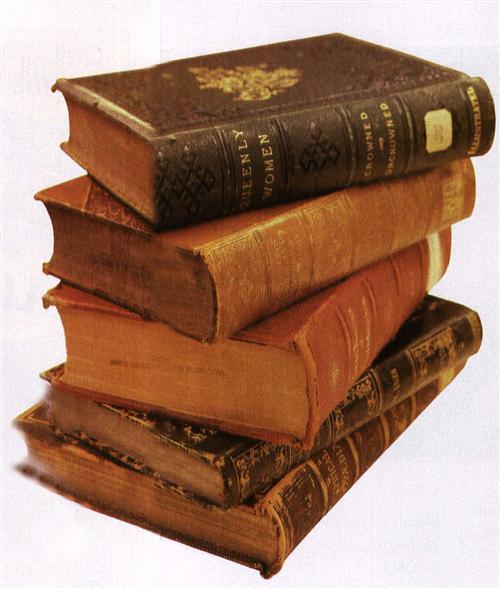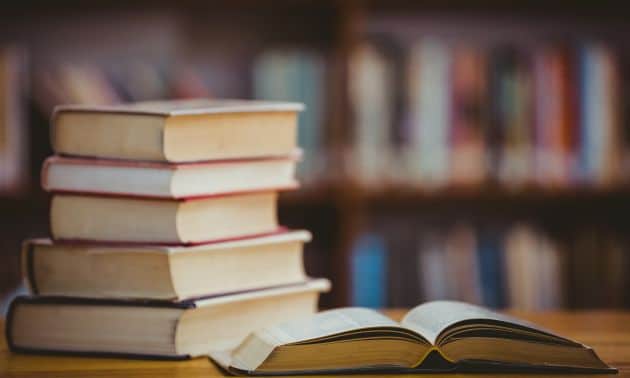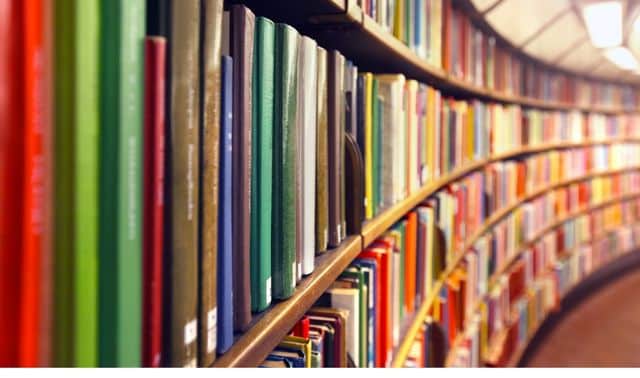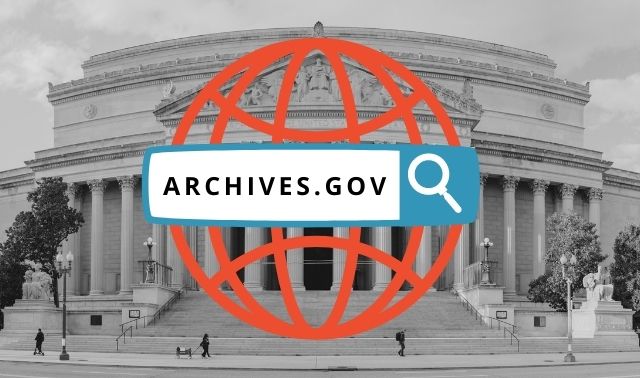
Family history probably wasn’t on Andrew Carnegie’s mind when he championed the creation of public libraries. But today, the local library system he helped create provides the means for millions of people to trace their family trees. Many public libraries now have dedicated genealogy or local history collections, making them an essential destination for every roots researcher. There you’ll find not only books, but also rare manuscripts, genealogical journals, census records and CD-ROMs, all full of valuable information you won’t find on the Internet.
Some of those local libraries have gone above and beyond to develop incredible family history collections that draw genealogists from well outside their neighborhoods. The Allen County Public Library’s genealogy collection has garnered a national reputation and attracts more than 100,000 researchers from across the country each year. But which other public libraries should you try hardest to work into your travel plans? (Of course, you don’t need to go there in person to take advantage of these research treasure troves — see the box on page 28 and the “Services” section for each library here.) In an effort to identify the 10 best public libraries for genealogists, we weighed these factors:
COLLECTION SIZE
How large is the library’s genealogy collection, counting not only books and manuscripts, but also microfilms, microfiches and periodicals?
GEOGRAPHIC SCOPE
Does the collection cover only a certain region or the entire United States? Does it include materials to help you identify immigrant origins or even to trace family lines abroad?
CENSUS RECORDS
Taken every 10 years since 1790, the federal census ranks as the most important source for American genealogists. How many of these records does the library have up through 1930, the most recent year open to the public? (Learn more about census research in the February 2002 Family Tree Magazine.)
SPECIAL COLLECTIONS
Does the library have other important sources, such as military records, passenger lists or vital-records indexes? Or maybe even original manuscript collections not found anywhere else?
ACCESSIBILITY
How much of the genealogy collection is listed in the library’s online catalog? Items that haven’t been cataloged online may escape your notice, especially if you can’t visit the library in person. Also, what percentage of the library’s genealogy books are in open stacks and accessible to library patrons? If books are kept in closed stacks, you have to fill out a request form for each book and wait for a library attendant to deliver the book to your desk. That means you’ll probably view fewer books and miss out on discoveries you might have made by browsing.
Note that we’re covering only local public libraries here. Genealogists are also blessed with many excellent private libraries (such as the renowned Family History Library in Salt Lake City), state libraries (such as the California State Library-Sutro in San Francisco), association libraries (such as the Daughters of the American Revolution Library in Washington, DC), and even independent research libraries such as the Newberry Library in Chicago. Not to mention the Library of Congress, state archives and the libraries of universities and genealogical and historical societies. You can find links to the online catalogs of many of the best of these libraries, plus more leading public libraries, at <www.familytreemagazine.com/articles/librarylinks.html>.
HONORABLE COLLECTIONS
While our top 10 list honors overall excellence, these city and county public libraries have earned bragging rights as standouts in specific areas:
• Largest Collections: The Allen County Public Library has the most genealogy holdings among public libraries; The New York Public Library comes in second.
• Best for Browsing: The Dallas Public Library has the largest number of volumes in open stacks (you can browse the bookshelves). Other good places to browse are the Birmingham Public Library, the Clayton Library and the Mid-Continent Public Library.
• Best Regional Collections: The Boston Public Library, the Kansas City (Mo.) Public Library, the St. Louis (Mo.) Public Library and the Seattle Public Library all have large collections focusing on their own areas of the country.
OFF-SITE OPTIONS
To take best advantage of these libraries’ wonderful collections, you’ll want to visit in person. But if you can’t do that, avail yourself of these long-distance alternatives:
INTERLIBRARY LOAN
While many libraries classify their genealogy books as reference materials for on-site use only, you can still get a lot of useful items on interlibrary loan. First, check the library’s online catalog and print out the bibliographic reference for any title that looks promising. Then take these pages to your local public library and request the items on interlibrary loan.
Even if the library that you know has the item will not lend it out, another library might. The Mid-Continent Public Library makes 7,000 genealogy and local history books available on interlibrary loan. And the St. Louis County Library <www.slcl.lib.mo.us/sld/sc/sc-genpg.htm> in Missouri now lends items from its circulating collection of more than 20,000 volumes recently transferred from the National Genealogical Society Library. You can get magazine articles, too: Instead of sending you the whole magazine or journal, libraries will usually send you a photocopy of only the article you need.
You may have to pay a small fee for an interlibrary loan, but that’s a lot cheaper than traveling across the country to view the book or hiring someone else to check it for you. Of course, you can also go to a Family History Center in your community to borrow microfilmed materials from the Family History Library (FHL) in Salt Lake City <www.familysearch.org>. While the FHL’s collections are enormous, they don’t have everything that might be useful in your research. Interlibrary loan through your public library gives you access to many more biographies, microfilmed newspapers and other valuable items.
REFERENCE SERVICES
A public librarian may be able to answer your question with a quick lookup or photocopy. A few tips for using far-off libraries’ reference services:
• Check the library’s Web site for details on the services it provides.
• Make your reference request brief, but be sure to include the name, place and date or general time period you’re researching.
• Send a self-addressed, stamped envelope (SASE) if you expect a reply by mail.
• Keep in mind that a public library’s primary obligation is to serve the residents of its own community. Try your local library before requesting the services of a distant one.
And know these reference-request basics:
Most public libraries will…
• Do a quick lookup in response to a question submitted by mail or phone.
• Check a book’s index for a specific name.
Some public libraries will…
• Do a quick lookup in response to a question submitted by e-mail or fax.
• Send you a copy of an obituary if you provide a name and exact date of death and pay the fee.
• Do limited research or make a few photocopies for a fee.
• Provide a list of professional researchers.
Take advantage of libraries’ reference services, but remember, most public libraries will not do extensive research for you.
ALLEN COUNTY PUBLIC LIBRARY
The Fred J. Reynolds Historical Genealogy Department was named for the library director who organized it in 1961. The largest genealogical library outside Utah, the Historical Genealogy Department is now a tourist magnet, serving some 110,000 patrons a year.
• Geographic Coverage: Visitors will find vast holdings for the entire United States (especially strong for eastern states), and significant collections for Canada, the British Isles and Germany. Click Who We Are on the library’s Web site for details.
• Special Collections: ACPL boasts the largest collection of English-language genealogy and local history periodicals in the world. It also has many state and territorial census records (in addition to the complete federal census, including 1930); most National Archives passenger lists and indexes on microfilm and most major printed sources for immigration records; most National Archives military service and pension records from the Revolutionary War to the Philippine Insurrection; Civil War regimental histories; and important American Indian and African-American records.
• Services: The library will provide copies of up to six articles in the Periodical Source Index (PERSI; see page 39) for $7.50 plus 20 cents per page. You can use the order form at <www.acpl.lib.in.us/database/graphics/order form.html>.
• Contact: Historical Genealogy Department, Allen County Public Library, 900 Webster St., Box 2270, Fort Wayne, IN 46802, (219) 421-1200, fax (219) 422-9686, cwitcher@acpl.lib.in.us, <www.acpl.lib.in.us>.
For a guide to researching in the Allen County Public Library and visiting Fort Wayne, see page 36.
HOURS
Monday through Thursday, 9 a.m. to 9 p.m.
Friday and Saturday, 9 a.m. to 6 p.m.
Sunday, 1 p.m. to 6 p.m.
Closed Sundays during the summer.
CLAYTON LIBRARY CENTER FOR GENEALOGICAL RESEARCH
Founded in 1921 as a special collection for genealogical research at the Houston Public Library, the Clayton Library now fills a two-building complex in Houston’s historic museum district. It attracts 70,000-plus researchers each year from all over the country.
• Geographic Coverage: Clayton offers researchers extensive collections covering the entire United States, as well as international sources for identifying immigrant origins in Europe, Canada and Mexico.
• Special Collections: Think index — Clayton has indexes to military service records from the American Revolution through the Philippine Insurrection, Civil War pension applications, plus births, marriages and deaths in England and Wales from 1837 to 1930. You can also access all 1820 to 1900 National Archives passenger lists on microfilm for most ports.
• Services: Library staff will tell you if Clayton owns a particular book and, if an exact citation is provided, will make photocopies for a small fee. But the staff won’t look up a name in a book, microfilm or CD. You can obtain a list of private researchers by sending an SASE to the address below.
• Contact: Clayton Library Center for Genealogical Research, 5300 Caroline St., Houston, TX 77004, (832) 393-2600, <www.houstonlibrary.org/clayton>.
HOURS
Monday through Wednesday, 9 a.m. to 9 p.m.
The family of Maj. Edward Magruder Tutwiler endowed a Southern History Department at the Birmingham Public Library in 1926. Its goal was to develop “the finest collection of Southern history and literature in the South.” The Tutwiler Collection now holds one of the largest genealogical collections for Southern research; more than 75,000 people use it each year.
• Geographic Coverage: It’s strongest for Alabama, but the library also has major holdings for Georgia, Mississippi, Tennessee, North and South Carolina, Virginia, Louisiana and other Southern states. See <www.bponline.org/sou/Genealogy.htm>.
• Special Collections: With the Freedmen’s Bureau Papers for Alabama, Native American censuses for the eastern Cherokee and Creek, the Final Rolls of Citizens and Freedmen of the Five Civilized Tribes in Indian Territory and the Draper Manuscripts, this is an excellent library to explore African- or Native American roots in the South.
• Services: Library staff cannot perform research, but will respond to written requests on a limited basis: For example, it will check an indexed book or collection for a specific name. See <www.bplonline.org/ask>, and find a list of independent researchers at <www.bplonline.org>.
• Contact: Tutwiler Collection of Southern History and Literature, Birmingham Public Library, 2100 Park Place, Birmingham, AL 35203, (205) 226-3665, fax (205) 226-3663, sou@bham.lib.al.us, <www.bham.lib.al.us>.
HOURS
Monday and Tuesday, 9 a.m. to 8 p.m.
Wednesday through Saturday, 9 a.m. to 6 p.m.
Sunday, 2 to 6 p.m.
Texas does everything in a big way, and the Dallas Public Library, formed in 1901, is no exception. Its recently renovated and expanded Genealogy Section has two miles of shelves and attracts 50,000-plus researchers every year.
• Geographic Coverage: You’ll find extensive collections for the entire United States and important resources for Canada, the British Isles, Germany and other countries.
• Special Collections: Dallas is the only library to have a complete set of state Confederate pension applications. Among its other treasures: all National Archives indexes to military service and pension records; all death records up to the mid-20th century for Kentucky, Tennessee and Texas; indexes to 20th~century vital records for Alabama, Arkansas, California, Florida, Georgia, Idaho, Kentucky, Louisiana, Mississippi, North Carolina, Ohio, South Carolina, Tennessee, Texas, Washington and Wisconsin.
• Services: Library staff will check indexed materials and report the findings and the cost of photocopies.
• Contact: Genealogy Section, Dallas Public Library, 1515 Young St., Dallas, TX 75201, (214) 670-1424, <www.dallaslibrary.org/CHS/cgc.htm>.
HOURS
Monday through Thursday, 9 a.m. to 9 p.m.
Friday and Saturday, 9 a.m. to 5 p.m.
Sunday, 1 to 5 p.m.
DENVER PUBLIC LIBRARY
Founded in 1910, the library’s vast Genealogy Collection is complemented by the 125,000 volumes, 135,000 microforms, 650,000 photographs and extensive manuscript collections of the Western History Collection.
• Geographic Coverage: The collection emphasizes Colorado and other Rocky Mountain states, and also boasts significant resources for Southern, African-American, Native American and Southwestern Hispanic research.
• Special Collections: With many federal records available at a nearby National Archives regional branch, the library has focused on books in its genealogy holdings. You’ll find 2,500 manuscripts and 6,000 historical maps here, as well as helpful Centennial State resources: an index to Colorado marriages and divorces for 1900 to 1939 and 1975 to 2001, Colorado naturalization records, an online Denver obituary index covering 1939 to the present and an index of African-American obituaries in the Colorado Statesman between 1904 and 1954. Researchers tracing Native American roots can view 1885 to 1945 Indian census rolls.
• Services: Library staff will answer brief reference questions, make a few photocopies and provide a list of professional researchers.
• Contact: Western History and Genealogy, Denver Public Library, 10 W. 14th Ave. Parkway, Denver, CO 80204, (720) 865-1821, <history.denverlibrary.org>.
HOURS
Monday through Wednesday, 10 a.m. to 9 p.m.
Thursday and Friday, 10 a.m. to 5:30 p.m.
DETROIT PUBLIC LIBRARY
The Detroit Public Library’ s Burton Historical Collection began as the private library of a local attorney, Clarence Monroe Burton. By 1914, his library had grown to 30,000 books, 40,000 pamphlets and 500,000 unpublished papers. In 1915, he donated the collection and the building that housed it to the Detroit Public Library.
• Geographic Coverage: Burton’s collection has a worldwide scope, but it’s especially strong for Michigan (Detroit in particular) and Canada.
• Special Collections: Along with records from Detroit and Michigan’s early days, Burton has indexes to help with 19th- and 20th-century ancestors. You’ll find statewide indexes for 1872 to 1920 marriages and 1867 to 1914 deaths, plus a biography index, cemetery records and a 1920 to 2000 death index for Detroit. If you want to take advantage of Burton’s numerous manuscripts, order the printed Guide to the Manuscripts in the Burton Historical Collection for $5 — only materials acquired in the last 11 years appear in the online catalog.
• Services: Reference staff accepts inquiries by phone, mail and e-mail. A list of researchers is on the library’s Web site.
• Contact: Burton Historical Collection, Detroit Public Library, 5201 Woodward Ave., Detroit, MI 48202, (313) 833-1480, dporemba@detroit.lib.mi.us, <www.detroit.lib.mi.us/burton>.
HOURS
Tuesday and Wednesday, noon to 8 p.m.
LOS ANGELES PUBLIC LIBRARY
The Los Angeles Public Library created separate Genealogy, California and Map Rooms in 1927. Disastrous fires struck the library in 1986, but spared the Genealogy Collection. The library was closed for three years following the fire. Then, in 1993, the Genealogy Collection moved to spacious, modern quarters in the renovated and enlarged Central Library.
• Geographic Coverage: Naturally, the LAPL offers extensive materials for California and the Los Angeles area. Strong Armenian, British and German collections highlight its international holdings.
• Special Collections: LAPL has one of the largest map collections in American public libraries. The genealogy department holds passenger lists of arrivals in Los Angeles, San Francisco, Boston, Philadelphia and some in New York, as well as rosters of soldiers in the Revolutionary War, the War of 1812 and the Civil War. It also has a strong heraldry collection.
• Services: The staff will do quick lookups in response to phone, fax or e-mail queries. Contact the library for information sheets on obituaries and city and telephone directories in Los Angeles County, and for a list of genealogists for hire.
• Contact: History and Genealogy Department, Los Angeles Public Library, 630 W. Fifth St., Los Angeles, CA 90071, (213) 228-7400, fax (213) 228-7409, history@lapl.org, <www.lapl.org/central/history.html>.
HOURS
Monday through Thursday, 10 a.m. to 8 p.m.
Friday and Saturday, 10 a.m. to 6 p.m.
MID-CONTINENT PUBLIC LIBRARY
President Truman’s hometown of Independence, Mo., boasts one of the largest genealogy libraries in the country. The seeds of the collection were planted in the 1960s with the donation of a few materials by the local DAR chapter. Today, the Mid-Continent Public Library is well-known for its helpful staff and extensive holdings; it attracts 90,000 researchers annually.
• Geographic Coverage: Mid-Continent’s genealogy resources span Missouri, states bordering Missouri and states east of Missouri.
• Special Collections: Here you can research in records of antebellum Southern plantations from the Revolution through the Civil War, the US Serial Set, the Draper Manuscripts and the papers of the St. Louis Fur Trade.
• Services: More than 7,000 genealogy and local history books may be borrowed on inter-library loan through your local library. The staff will check indexed materials in response to phone, mail and e-mail requests. And the library’s Web site has a list of researchers for hire.
• Contact: Genealogy and Local History, Mid-Continent Public Library, 317 W. 24 High-way, Independence, MO 64050, (816) 252-7228, ge@mcpl.lib.mo.us, <www.mcpl.lib.mo.us>.!
HOURS
Monday through Thursday, 9 a.m. to 9 p.m.
Friday, 9 a.m. to 6 p.m.
THE NEW YORK PUBLIC LIBRARY
Every year, the Milstein Division of The New York Public Library attracts more than 35,000 genealogists from throughout the United States and receives mail inquiries from around the world. It’s one of the library’s most heavily used divisions.
• Geographic Coverage: Local and state histories cover the entire United States, while family histories are international in scope and include foreign-language materials.
• Special Collections: Come here for “exclusive” materials — the library has many manuscript and typescript volumes not found elsewhere.
• Services: Staff will perform limited research in response to written requests. For example, they will “look up names in published indexes, check census maps for New York City census districts [or] look for an individual in up to three years of city directories.” NYPL Express provides photocopies in response to mail, phone, fax and e-mail requests. See <www.nypl.org./doc_serve.html> for fees and an order form.
• Contact: Irma and Paul Milstein Division of United States History, Local History and Genealogy, Room 121, The New York Public Library, Humanities and Social Sciences Library, Fifth Avenue and 42nd Street, New York, NY 10018, (212) 930-0828, histref@nypl.org, <www.nypl.org/research/chss/lhg/genea.html>.
HOURS
Monday and Thursday through Saturday, 10 a.m. to 6 p.m.
PUBLIC LIBRARY OF CINCINNATI AND HAMILTON COUNTY
Ever since it was founded in 1853, the Public Library of Cincinnati and Hamilton County has housed a genealogy collection. Today, the library receives donations of family histories from researchers all over the world. In 2001, the library’s staff answered nearly 100,000 genealogy reference questions.
• Geographic Coverage: US items encompass all 50 states; you’ll also find a large collection relating to Germany and the British Isles.
• Special Collections: The library offers extensive Civil War materials — regimental histories, the official records of the war (OR for short; see page 63) and the National Archives’ indexes to military pension applications (for the Civil War and other conflicts). PLCH also has a noteworthy African-American collection that includes records of antebellum southern plantations and Freedman’s Bureau records. The library’s passenger-list indexes and 19th-century New York passenger lists let you track immigrant ancestors, and US city directories from the 1700s to the 1930s help you find where your kin lived. Its 19th-century land-ownership maps cover two-thirds of US counties.
• Services: The staff does limited research in response to mail requests. To search the surname index to the library’s collection of compiled genealogies, go to <www.cincinnatilibrary.org> and click on Connect to the Library catalog (you’ll need FTP software, which comes with most Windows systems). Select A for all locations and menu item 9 for other types of searches. Then choose menu item 6 to find books with a specific surname in their title, or menu item 13 to search for books that have the surname in their index.
• Contact: Public Library of Cincinnati and Hamilton County, 800 Vine St., Cincinnati, OH 45202, <www.cincinnatilibrary.org/info/main/hi>, (513) 369-6905, fax (513) 369-3123. For e-mail contacts, see <www.cincinnatilibrary.org/reference>.
HOURS
Monday through Friday, 9 a.m. to 9 p.m.
Saturday, 9 a.m. to 6 p.m.
Sunday, 1 to 5 p.m.




